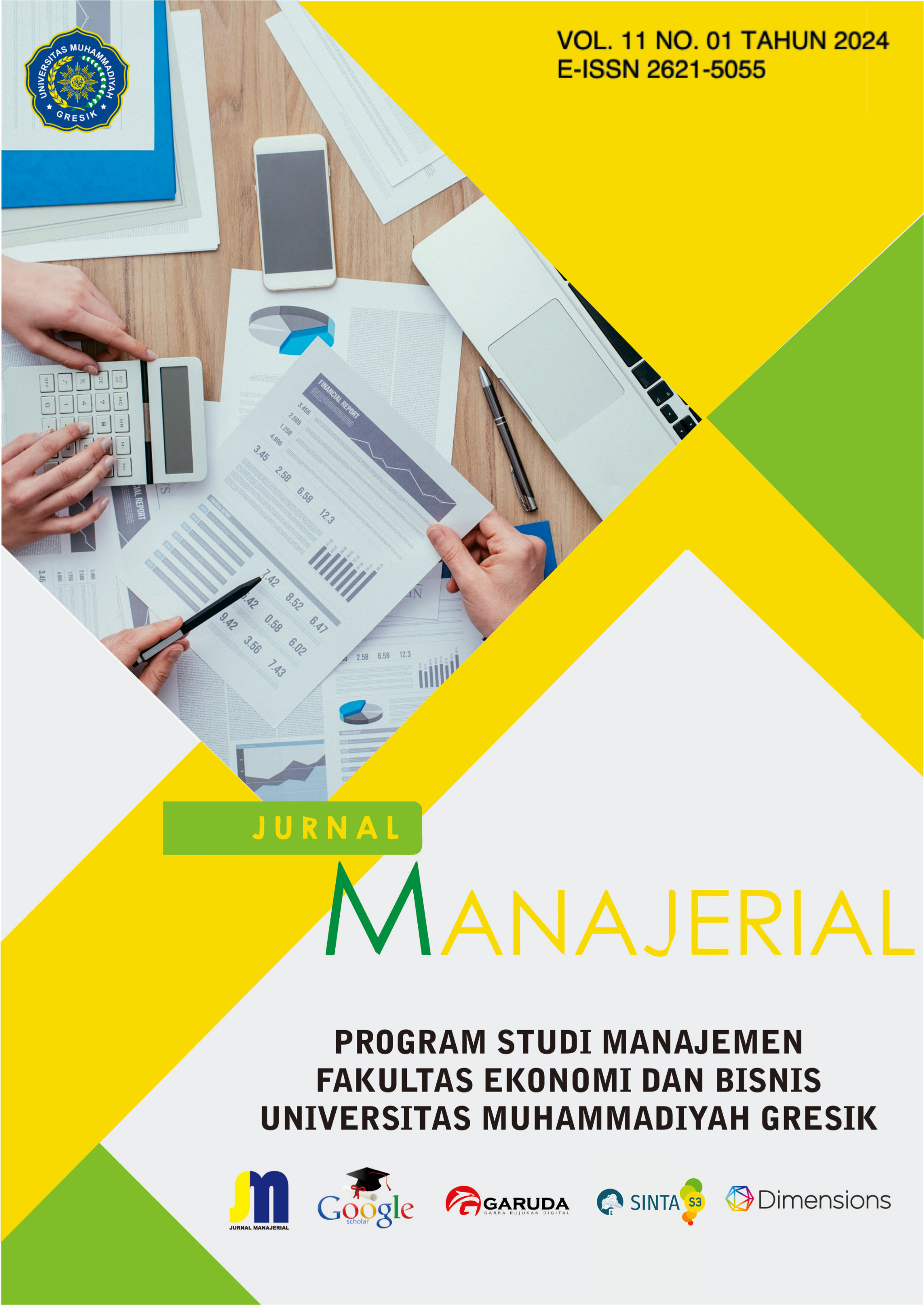Pengaruh Financial Literacy, Lifestyle, dan Self-Control Terhadap Saving Behavior Generasi Z Jakarta Selatan
DOI:
https://doi.org/10.30587/jurnalmanajerial.v11i01.6300Keywords:
Financial, Literacy, Lifestyle, Control, Saving, BehaviorAbstract
Background – Z Generation is a generation with digital native and multitasking characters who are surrounded by lifestyle trends and technological developments that are constantly changing rapidly, this makes the level of financial literacy and self-control low where saving behavior is necessary as an important aspect of financial life in order to achieve stability of finances and future preparation.
Aim – The purpose of this study was to examine and analyze whether financial literacy, lifestyle, and self-control have an influence on the saving behavior of Z Generation South Jakarta.
Design/ methodology/ approach – This research approach uses a quantitative approach by obtaining data from distributing questionnaires to 349 respondents which are then processed using data analysis techniques using the SEM (Structural Equation Modeling) model with SmartPLS software version 3.2.9 (Partial Least Square).
Findings – Based on the results of the study proving that financial literacy has a significant positive effect on saving behavior, these results mean that the higher the financial literacy of Z Generation, the higher their saving behavior will be. Meanwhile, lifestyle and self-control do not have an influence on saving behavior, this can be interpreted that everyone has a different lifestyle and self-control, so whatever the lifestyle and self-control of Z Generation, it does not have an influence on the saving behavior of Generation Z, South Jakarta it can be caused by other factors.
Conclusion - Gen Z's lifestyle does not have a significant influence on the savings decisions of individuals in Gen Z. Similar to Gen Z's self control which does not support saving behavior.
Research implication – This research adds insight into the factors related to saving behavior, especially financial literacy, lifestyle, and self-control of the younger generation. It is necessary to highlight these factors for generation Z in South Jakarta to be able to care more about their finances which will grow and improve behavior in saving for a controlled and peaceful future.
Limitations – In this research, the limitation is that the area only took four sub-districts in South Jakarta, including Cilandak sub-district, Jagakarsa sub-district, Kebayoran Lama sub-district, and Pasar Minggu sub-district. In addition, the population and sample focus on Z Generation with the age chosen as a sample of 16-26 years, where future researchers are expected to use a wider number of sub-districts or research in one area and choose a variety of ages to provide even better results and able to provide more extensive information.






























 P-ISSN: 2354-8592 __ E-ISSN: 2621-5055
P-ISSN: 2354-8592 __ E-ISSN: 2621-5055 
